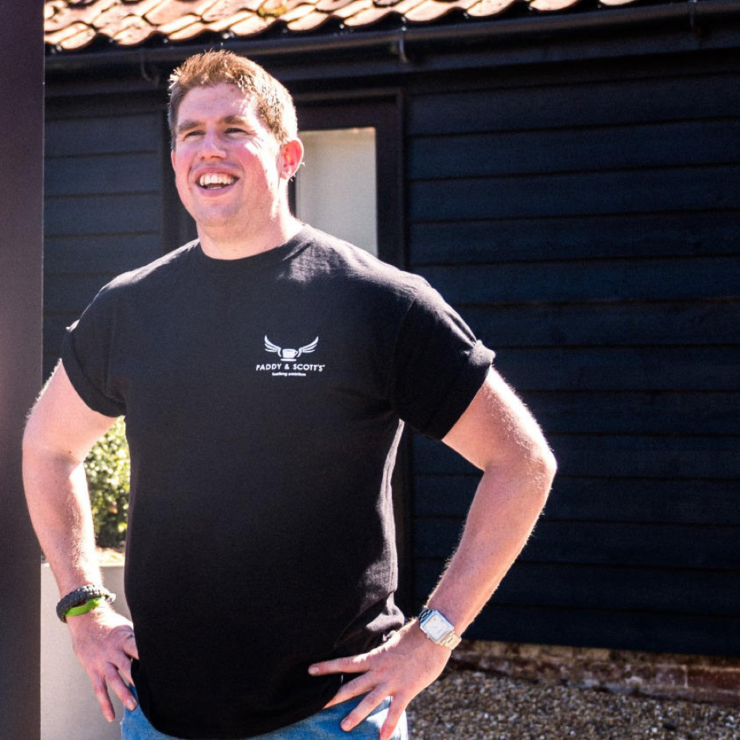Being answerable on authenticity
It struck me recently how many foodie firms there are with beautiful (yet similar) stories on the origins of their business. Generally, it involves two passionate mates with a zest for life, travel and food. Said mates jump on a plane, spend a few months eating everything "local" in sight and then stumble across the next big thing. Be it a new local delicacy or style of cooking. “We’ve gotta get this back to the UK for a pop-up!” they say “And quickly!”
In the list of businesses that nail their flag to such a story, there are some huge success stories and more to come I’m sure.
No surprises for guessing that in 2007 Paddy & Scott were two mates, both coffee lovers with bags of ambition and space in Scott’s garage that was crying out to become a coffee roastery (They even jumped on a plane or two to find the most stunning coffee beans from around the world). Enter very real, but alas, much trodden story of humble beginnings. Two mates with big ambitions and…boom! A craft coffee business was born.
Fast-forward to about two years ago when we, as a company, asked ourselves one very simple question. “What do we want to be famous for?” It was clear the original story that is the foundation of our brand was still as relevant today as it was ten years ago. But the reality was we wanted our brand to be about more than just about our heritage.
We pulled the team together and asked the same famous question and then, over the coming weeks, had several brilliant debates over authenticity. (It turned into more of an authenticity audit as it happens). Initially we weren’t convinced we could re-engineer our brand without the support of big agencies, research and focus groups etc. But in line with our vision around #FuellingAmbition we only know to practise what we preach. (One further question asked regularly at the "Bean Barn": “Is this decision/discussion fuelling our ambition?” If no, “NEXT”).
So, in throwing everything up in the air, some stuff landed, some crashed and some stuff we caught and ran with. We challenged ourselves to be answerable on authenticity at every layer of our business. How do we recruit and train people? Where are our raw products being sourced? What about water recycling? Single-use plastic policies and the compostable cups we’ve been serving coffee in for years! How much of our customer’s pound is feeding back to the farmers who actually grow our coffee?
You don't need to be an expert to realise consumers are becoming more and more savvy. Those businesses out there that have creative tax schemes or have huge gaps in their "story", you're under threat. Authenticity is the new currency of choice.
Two years on and it’s still our authentic story that lands us multimillion-pound contracts. We’re still a coffee company with humble beginnings. Only now we are using our success to generate change in our beloved industry. Slapping a Fairtrade logo on a coffee bag and prancing around acting all sanctimonious – people see through that. They want to know you've got your hands dirty, you feel the pain of hard graft and you genuinely eat, sleep and breathe your product. Bullshit the consumer at your peril.
In 2017 we launched the Muchomba Farm and Ruiga School project in Kenya. We've invested tens of thousands of dollars working direct with the Muchomba family and the wider community, which will run into hundreds of thousands as we roll through this ten-year project. We share their pain, joys and genuinely feel tremendous pride when we see our logo over the farm entrance. We wait with bated breath for the result of the early fly crop harvest, see the results of work we're doing at the local school and the positive effect it has on the children of the local community. We’re making sure the people growing our coffee believe in a bright future for their children. Our coffee is genuinely, authentically changing lives.
Over in Kenya we set aside 4,000 coffee trees and set about finding founder members to purchase one and enjoy the crop four times a year. It really helped us create a sponsor community and now our YouTube channel has nearly 17,000 subscribers. Business in our coffee shops is booming and companies such as Marriott International and other leading operators are now serving the coffee from our farm in their businesses. The brand is reinventing itself and it’s great to know that on the odd occasion our founder and chief executive Scott is still (at times) the guy replying to customers on Twitter.
As we grow we face the serious challenge of driving our growth, while remaining under the radar and "real". Do we need to put infrastructure in place to continue delivering excellence? At what point do we employ a social media specialist or PR agency?
Like many others we’re fighting the urge to become "corporate". Thankfully we have a really strong culture, underpinned by our values and a team that challenges everything (so much so we’re just launching an employee profit share scheme so our people feel truly invested in our business.) So, is the lure of the corporate thing difficult? Not really, it’s just not us.

Jon Reed is brand director at Paddy & Scotts.

